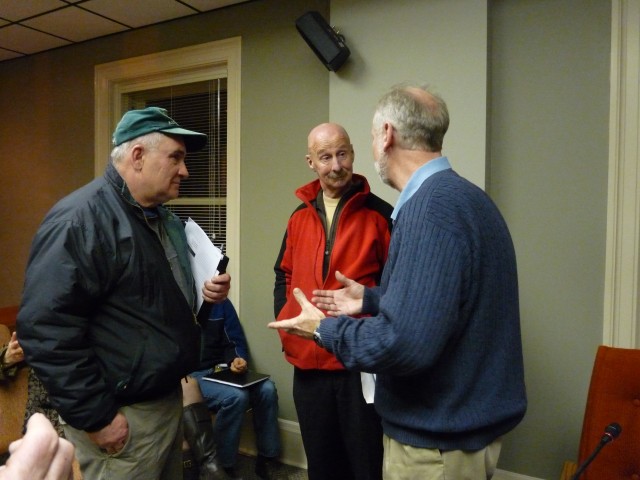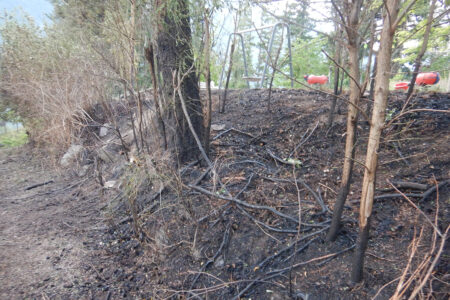Grand Forks council hones in on financial plan
A small gallery of residents was witness to the second public meeting in the Grand Forks City Council’s budget process on Feb. 1. After a presentation by Councillor Christine Thompson and Mayor Brian Taylor in council chambers, the gallery took time to ask questions and give the council some insight from the taxpayers’ perspective.
Thompson’s presentation outlined council’s strategic plan and some challenges and opportunities facing the community before giving some details about the proposed financial plan. Considering the economic condition of the city and the province, the need to address the city’s aging infrastructure, rising electrical costs, and the loss of local industry, council has prioritized maintaining current service levels, beautification, infrastructure needs, economic development and local pathways.
The 2010 financial plan indicates no overall tax revenue increase, although mill rates (the percentage charged to each residence) may increase as the budget is finalized and then allocated over all the properties. This means that the city’s revenue levels will remain the same as last year, but that the amount paid by taxpayers may not be the same as 2009.
An important decision in the financial plan is that council has decided to use the electrical rebate (normally given to electrical service users) to balance their budget in an effort to keep taxes lower. “By taking that surplus and offsetting a tax increase it benefits the community as a whole, and that’s what this council is going to do this year.” said Thompson.
New in the upcoming budget is an annual item for grant in aid of $75,000. This will allow council to provide grants for local organizations. Taylor said that if the province would reinstate the gaming grants there would be less pressure on local governments to fill the gap left by the lack of access to funding for non-profit organizations. Economic planning will be funded up to $35,000 to create a new website, brochures, and other promotional activities. Infrastructure funding is estimated to be about $45,000 in 2010.
Users can also anticipate increases to water, sewer and garbage rates in 2010. Council anticipates about two per cent for water and sewer while electrical rates can be increasing as high as seven per cent. The impact of the new garbage contract is unknown at this time.
Residents spoke in favour of continuing support to the Phoenix Ski Hill, and raised concerns over the proposed spending by council. Both Art Stavenjord and Joe Mottishaw took council to task suggesting they need to run the city more like a business. Stavenjord, a resident of the city for 59 years, suggested that their overall plan is a mistake as creating pathways would not address the use of vehicles, nor should an electrical truck need to be purchased, especially in the current economic situation.
“I see no effort by the city to attract new business here,” said Stavenjord. “With 600 – 700 jobs lost what are we doing to replace them? I’m disappointed in the manner that the city is dealing with economic development.”
Stavenjord also suggested that instead of dealing with the continually rising costs of the electrical business, council should start discussions with FortisBC to see if they are interested in buying the service.
Mottishaw raised concerns about ever-climbing municipal taxation. According to Mottishaw, an article in the Province newspaper said that municipalities are the least likely to make budget concessions in spending, instead they tend to go to taxpayers for financing the continuation of high budgets.
The next step in the budget process will be to create the five-year financial plan bylaw at which time the full details of the budget will become available. There will be another public meeting to receive input at that stage.























